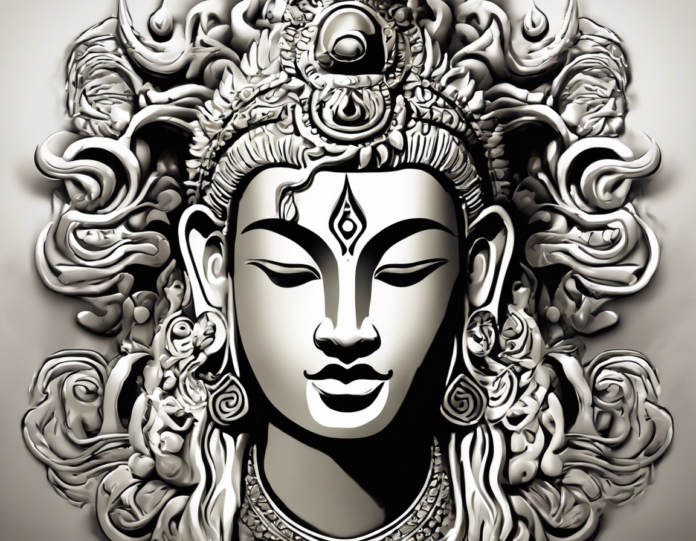Introduction
Hinduism is a vibrant and diverse religion with numerous festivals and celebrations throughout the year. One such auspicious occasion is Sawan Shivratri, a significant festival dedicated to Lord Shiva. The festival falls in the month of Sawan, also known as Shravan, the fifth month of the Hindu calendar which usually corresponds to the months of July-August in the Gregorian calendar. In 2023, Sawan Shivratri will be celebrated on Wednesday, 19th July. This article delves into the dates and significance of Sawan Shivratri, providing a comprehensive overview of the festival’s traditions, rituals, and cultural importance.
Significance of Sawan Shivratri
Sawan Shivratri holds immense significance in Hindu mythology and tradition as it is believed to be the day when Lord Shiva, the destroyer and transformer in the Hindu trinity, performed his cosmic dance, known as the Tandav. Devotees observe fasts, offer prayers, and perform various rituals to seek the blessings of Lord Shiva on this auspicious day. It is believed that worshiping Lord Shiva with devotion and sincerity on Sawan Shivratri can bring prosperity, peace, and overall well-being.
Dates and Observances
Sawan Shivratri is observed on the Chaturdashi or the fourteenth day of the Shukla Paksha (waxing phase of the moon) in the month of Sawan. The festival holds special significance in the North Indian states, where elaborate rituals and celebrations take place. Devotees wake up early, take a holy bath, visit Shiva temples, and offer prayers to seek the divine blessings of Lord Shiva on this day. Some people also observe a Nirjala fast (fasting without consuming water) as a mark of devotion and penance.
Rituals and Traditions
On Sawan Shivratri, devotees engage in various rituals and traditions to express their reverence and devotion to Lord Shiva. Some common practices associated with the festival include:
-
Offering Milk and Water: Devotees offer milk and water to the Shivling in temples as a symbolic gesture of purity and devotion.
-
Chanting Mantras: Reciting Shiva mantras and hymns is a common practice on Sawan Shivratri to invoke the blessings of Lord Shiva.
-
Abhishek: Performing abhishek (ritual bathing) of the Shivling with water, milk, honey, and other sacred substances is considered auspicious on this day.
-
Lighting Incense and Diyas: Lighting incense sticks and earthen lamps is believed to purify the surroundings and create a divine atmosphere during the puja.
-
Offering Bel Patra and Dhatura: Bel patra (bilva leaves) and dhatura (thorn apple) are considered sacred offerings to Lord Shiva and are often used during prayers.
Importance of Sawan Shivratri
Sawan Shivratri is considered highly auspicious for those seeking spiritual growth, inner peace, and fulfillment. It is believed that the divine vibrations and energy present during this time can help individuals overcome obstacles, purify their consciousness, and attain spiritual upliftment. By observing the traditional customs and rituals associated with Sawan Shivratri, devotees express their gratitude and devotion to Lord Shiva and seek his blessings for a harmonious and prosperous life.
Frequently Asked Questions (FAQs)
- What is the significance of Sawan Shivratri?
Sawan Shivratri is dedicated to Lord Shiva and is believed to be the day when he performed his cosmic dance, the Tandav. Devotees observe fasts and perform rituals to seek his blessings.
- When is Sawan Shivratri celebrated in 2023?
In 2023, Sawan Shivratri will be celebrated on Wednesday, 19th July.
- What are some common rituals associated with Sawan Shivratri?
Common rituals include offering milk and water to the Shivling, chanting mantras, performing abhishek, lighting incense and diyas, and offering sacred leaves and flowers.
- Why is fasting observed on Sawan Shivratri?
Fasting is a way to purify the body and mind, showing devotion and dedication to Lord Shiva. Some people observe a Nirjala fast (without water) on this day.
- How is Sawan Shivratri celebrated in North India?
In North Indian states like Uttar Pradesh and Bihar, Sawan Shivratri is celebrated with grandeur. Devotees visit Shiva temples, participate in processions, and offer prayers with fervor.
- What is the significance of offering Bel Patra and Dhatura to Lord Shiva?
Bel patra and dhatura are considered sacred to Lord Shiva and symbolize purity and devotion. Offering these leaves is believed to please the deity and bring blessings.
- Can non-Hindus participate in Sawan Shivratri celebrations?
Sawan Shivratri is a religious Hindu festival, but people of all faiths are generally welcome to join in the celebrations with respect and reverence for the traditions and customs.
- Are there any specific prayers or mantras recited on Sawan Shivratri?
Devotees often recite the Maha Mrityunjaya Mantra and the Shiva Chalisa on Sawan Shivratri to seek the protection and blessings of Lord Shiva.
- What is the significance of the Shiva Tandav on Sawan Shivratri?
The Shiva Tandav is a cosmic dance symbolizing creation, preservation, and destruction. Sawan Shivratri is believed to be the day when Lord Shiva performed this divine dance.
-
How can one observe Sawan Shivratri at home?
To observe Sawan Shivratri at home, one can clean the puja area, set up a Shivling, offer milk and water, light incense and diyas, and recite mantras or hymns dedicated to Lord Shiva.
Conclusion
Sawan Shivratri is a sacred festival that holds deep spiritual significance for Hindus around the world. By observing the rituals and traditions associated with this auspicious day, devotees seek the blessings of Lord Shiva for spiritual growth, prosperity, and well-being. The festival serves as a reminder of the importance of devotion, self-discipline, and faith in one’s spiritual journey. Participating in the celebrations of Sawan Shivratri fosters a sense of community and connection among devotees, reinforcing the values of love, compassion, and harmony in society.
